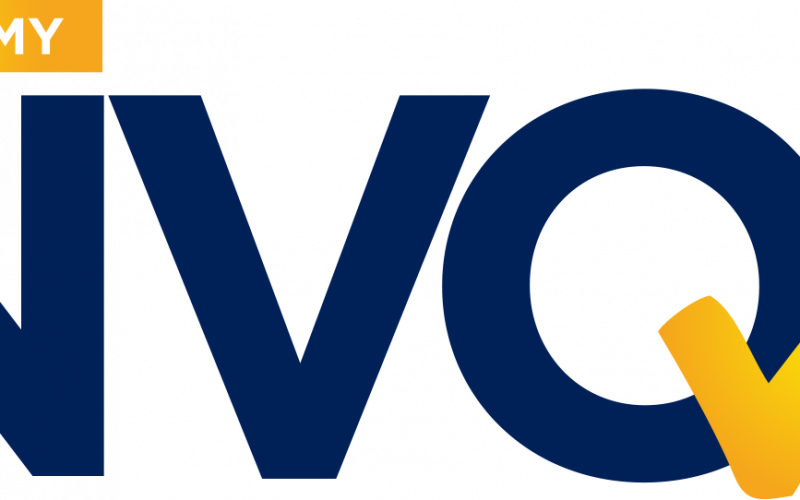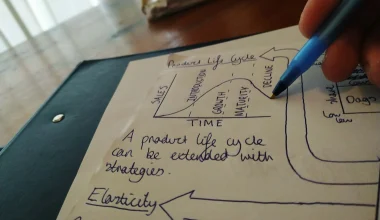If you are looking to improve your skills, knowledge, and career prospects, then studying for an NVQ is a great option.
When considering furthering your education or training, an NVQ is a great option to consider, as it helps you develop the skills and knowledge you need to succeed in your chosen field.
These qualifications are available in different occupations, from hairdressing to engineering. NVQs are a valuable way to demonstrate your skills and knowledge to employers. They also help in career progress, and as well help you earn better pay.
Therefore, we will take you through everything you need to know about NVQ, in this post.
Table of Contents
- What is an NVQ?
- NVQ Levels
- What are the Benefits of studying for an NVQ ?
- What Job can I do with NVQ?
- Is an NVQ a diploma?
- How long does it take to Complete an NVQ?
- What are the entry requirements for an NVQ?
- What are the NVQ equivalents?
- How are NVQ’s assessed?
- How much are the NVQ fees, and is there any NVQ funding?
- How to study for an NVQ
- What can I do after an NVQ?
- Conclusion
- FAQs
- References
- Recommendations
What is an NVQ?
NVQ stands for National Vocational Qualification. It is a work-based qualification that is designed to assess and validate the skills and knowledge required to perform a particular job role. NVQs are available in a wide range of occupations, from hairdressing to engineering.
NVQs are competency-based, which means that they assess your ability to do the job, rather than your knowledge of the subject. This makes them a valuable qualification for employers, as they can be sure that you have the skills and knowledge necessary to do the job.
NVQ Levels
NVQs are a valuable way to gain skills and knowledge in a particular occupation. They can also help you to progress in your career and earn a higher salary.
NVQs are graded from Level 1 to Level 7, with Level 1 being the most basic and Level 7 being the most advanced. The level of an NVQ reflects the complexity of the skills and knowledge required for the job role.
Read Related Post: How Long is Sixth Form in the UK? A Guide To Private Sixth Form In The UK
There are 7 main NVQ levels, ranging from Level 1 to Level 7.
- NVQ Level 1 is the most basic and is for those who are new to a particular occupation or industry. It covers the basic skills and knowledge needed to perform routine tasks.
- NVQ Level 2 is for those who have some experience in an occupation and can perform a range of tasks. It requires a good understanding of the subject area and the ability to apply knowledge and skills in a variety of contexts.
- NVQ Level 3 is for those who are competent in their occupation and can work independently. It requires a thorough understanding of the subject area and the ability to use knowledge and skills to solve problems.
- NVQ Level 4 is for those who can manage and supervise others. It requires a deep understanding of the subject area and the ability to apply knowledge and skills to complex situations.
- NVQ Level 5 is for those who can make strategic decisions and lead teams. It requires a mastery of the subject area and the ability to apply knowledge and skills to a wide range of contexts.
- NVQ Level 6 is for those who are experts in their field and can conduct research and develop new knowledge. It requires a profound understanding of the subject area and the ability to apply knowledge and skills to solve complex problems.
- NVQ Level 7 is the highest level of NVQ and is for those who are leaders in their field. It requires a deep understanding of the subject area and the ability to apply knowledge and skills to create new knowledge and experience.
Above are the 7 main NVQ levels, ranging from Level 1 to Level 7.
In addition to these main levels, there is also an Entry Level NVQ, which is for those who have no prior experience or qualifications in a particular occupation.
The NVQ levels are equivalent to academic qualifications, such as GCSEs, A-Levels, and degrees. For example, NVQ Level 3 is equivalent to two A-Levels, and NVQ Level 5 is equivalent to a foundation degree.
What are the Benefits of studying for an NVQ?
There are many benefits to studying for an NVQ. Here are some of the most common:
- Improve your skills and knowledge: NVQs are designed to help you develop the skills and knowledge you need to do your job effectively. This can lead to better performance in your current role, or it can help you progress to a more senior position.
- Increase your earning potential: NVQs can help you increase your earning potential by demonstrating your skills and knowledge to potential employers. In some cases, employers may be willing to pay a higher salary for employees with NVQs.
- Gain a recognised qualification: NVQs are recognized by employers and education providers across the UK. This means that they can help you improve your career prospects and make it easier to progress to further study or training.
- Become more employable: NVQs can make you more employable by demonstrating your skills and knowledge to potential employers. In some industries, NVQs are essential for getting a job.
- Learn while you earn: You can study for an NVQ while you are working, which means that you can continue to earn an income while you are developing your skills.
- Be flexible: NVQs are flexible, so you can study at your own pace and fit your studies around your work and other commitments.
Also Read: How To Write Fast In Exam: A Quick Guide To Write Faster During Exams
What Job can I do with NVQ?
The specific jobs you can do with an NVQ will vary depending on the industry and the level of the qualification. However, NVQs can open up a wide range of career opportunities.
Here are some specific examples of the jobs you can do with an NVQ:
- Level 1 NVQ: Entry-level roles in hospitality, retail, and construction
- Level 2 NVQ: More skilled roles in engineering, health and social care, and hairdressing
- Level 3 NVQ: Professional roles in IT, finance, and customer service
- Level 4 NVQ: Senior roles in management and leadership
- Level 5 NVQ: Expert roles in engineering, healthcare, and education
Is an NVQ a diploma?
Not necessarily. An NVQ is a work-based qualification that is assessed on your ability to perform tasks in the workplace. It is not a diploma, which is a more general academic qualification that is typically awarded by a college or university.
A diploma is a more academic qualification, while an NVQ is a work-based qualification. However, NVQs are still a valuable qualification and can be a stepping stone to further study or a more senior role.
Some NVQs are awarded as diplomas. For example, the ILM Level 4 NVQ Diploma in Management is a diploma-level qualification that is designed for managers.
The level of an NVQ is determined by the complexity of the tasks that it covers. NVQs range from Level 1 (entry level) to Level 8 (expert level).
NVQs are recognized by employers and can help you to get a job or promotion. They can also be used to progress to higher-level qualifications, such as degrees.
Also See: Do You Have to Pass English Literature? What’s Most Important in 2024
How long does it take to Complete an NVQ?
The amount of time it takes to complete an NVQ depends on the level of the qualification, your previous experience and qualifications, and how much time you can commit to studying.
- Level 1: This is the entry level qualification and is typically suitable for people with no prior experience or qualifications. It can be completed in around 6 months to a year.
- The Level 2: This qualification is for people with some experience in the relevant field. It can be completed in around 1-2 years.
- NVQ Level 3: This qualification is for people with a good level of experience in the relevant field. It can be completed in around 2-3 years.
- Level 4: This qualification is for people with a high level of experience in the relevant field. It can be completed in around 3-4 years.
However, these are just general guidelines. The actual time it takes to complete will vary depending on the individual’s circumstances.
Here are some factors that can affect the time it takes to complete:
- Your previous experience and qualifications: If you have prior experience or qualifications in the relevant field, you will likely be able to complete the qualification more quickly than someone who does not have any experience.
- How much time you can commit to studying: If you can commit to studying full-time, you will likely be able to complete the qualification more quickly than someone who can only study part-time.
- The complexity of the qualification: Some are more complex than others and will therefore take longer to complete.
- Your learning style: Some people learn more quickly than others. If you are a fast learner, you will likely be able to complete the qualification more quickly.
If you are unsure how long it will take you to complete an NVQ, you should speak to your employer, training provider, or assessor. They will be able to give you a more accurate estimate based on your individual circumstances.
Here are some tips for completing an NVQ more quickly:
- Set realistic goals and break the qualification down into smaller, more manageable steps.
- Find a study method that works for you and stick to it.
- Get organized and keep track of your progress.
- Ask for help when you need it.
- Stay motivated and don’t give up!
Read Also: What Time Do Primary Schools Start and Finish in the UK?
What are the entry requirements for an NVQ?
There are no specific entry requirements to study for an NVQ. You can be any age, and are free to start at a level that suits you – although you may need to complete a level 2 NVQ before starting a level 3.
You’ll also need a job or work placement that allows you to develop the skills needed to complete your qualification.
The NVQ levels are as follows:
- Level 1: Entry level qualification, covering routine tasks and basic knowledge.
- Level 2: Intermediate qualification, covering more complex tasks and developing some supervisory skills.
- Level 3: Advanced qualification, covering more complex work and developing managerial skills.
- Level 4: Higher level qualification, covering specialist knowledge and skills.
- Level 5: Professional level qualification, covering advanced knowledge and skills.
- Level 6: Master’s level qualification, covering research and development in a particular field.
- Level 7: Doctorate level qualification, covering original research in a particular field.
The cost varies depending on the level and the qualification provider. In general, you can expect to pay between £500 and £1,000 for an NVQ.
What are the NVQ equivalents?
They are awarded based on the demonstration of skills and knowledge in a particular occupation. Ans are also available at 8 levels, from Level 1 (entry level) to Level 8 (expert level).
The following are the rough equivalents levels to other qualifications:
- Level 1: 3/4 GCSE grades D-G
- NVQ Level 2: 4-5 GCSE grades A*-C
- Level 3: 2 A Levels
- NVQ Level 4: Higher Education Certificate/BTEC
- Level 5: Higher Education Diploma/Foundation Degree
- Level 6: Undergraduate Degree/Degree Apprenticeship
- NVQ Level 7: Master’s Degree/PGCE
- Level 8: Doctorate
It is important to note that these are just rough equivalents and the actual equivalence may vary depending on the specific qualification and the awarding body.
Here are some additional things to note:
- The equivalence of this levels to other qualifications is not always clear-cut. There may be some variation in the equivalence depending on the specific qualification and the awarding body.
- These are vocational qualifications, while other qualifications such as A-Levels and GCSEs are academic qualifications. This means that NVQs focus on developing functional skills, while other qualifications focus on developing academic knowledge.
- They can be a good way to gain the skills and knowledge you need for a particular job or career. They can also be a stepping stone to further education and training.
More: How Long Are A-Level Exams?
How are NVQ’s assessed?
They are assessed through a combination of methods, including:
- Portfolio of evidence: You will need to build up a portfolio of evidence to demonstrate your skills and knowledge. This evidence could include things like work samples, job logs, reports, and certificates.
- Observation: An assessor will observe you at work to see you perform the tasks required for the qualification.
- Questioning: The assessor will ask you questions about your work to test your knowledge and understanding.
- Discussion: You may be asked to discuss your work with the assessor to provide further clarification.
- Simulations: You may be asked to complete simulations of work tasks to test your skills and knowledge.
The specific assessment methods used will vary depending on the individual’s circumstances. However, all qualifications are assessed against the National Occupational Standards (NOS) for the job role in question. The NOS set out the skills, knowledge, and understanding that a competent worker in that role should have.
To be awarded an NVQ, you must demonstrate that you are competent in all of the areas covered by the NOS. This means that you must be able to perform the tasks required for the job to the required standard, and you must have the necessary knowledge and understanding.
NVQs are graded on a pass/fail basis. If you fail an NVQ, you can usually retake the assessment.
Here are some additional things to keep in mind about NVQ assessment:
- The assessment process is designed to be fair and rigorous.
- The assessors are qualified professionals who are familiar with the NOS for the job role.
- You will have the opportunity to discuss your assessment with the assessor if you have any concerns.
How much are the NVQ fees, and is there any NVQ funding?
The cost of NVQ fees varies depending on the level of qualification, the subject area, and the provider. In general, NVQ Level 2 qualifications cost around £500-£1,000, NVQ Level 3 qualifications cost around £1,000-£2,000, and NVQ Level 4 qualifications cost around £2,000-£3,000.
There are several funding options available for NVQs, including:
- Government funding: The government offers to fund for NVQs to certain groups of people, such as unemployed people, people on low incomes, and people with disabilities.
- Employer funding: Some employers will pay for their employees to take NVQs.
- Training provider funding: Some training providers offer financial assistance to their students.
- Scholarships and grants: There are several scholarships and grants available for NVQs.
To find out more about funding options for NVQs, you can contact your local college or training provider, or you can search online.
Here are some specific examples of funding:
- The Skills Funding Agency offers funding for NVQs to unemployed people, people on low incomes, and people with disabilities.
- The Construction Industry Training Board (CITB) offers funding for NVQs in construction to employers.
- The National Careers Service has a list of scholarships and grants available for NVQs.
How to study for an NVQ
There are many ways to study for an NVQ. You can study through a college or training provider, or you can study independently. If you are studying independently, you will need to find an accredited course and register with an awarding body.
The assessment for an NVQ is usually carried out by an assessor who will observe you at work and ask you questions about your skills and knowledge. You may also need to complete some written assessments.
See Also: When is the Student Finance Application Deadline in the UK?
What can I do after an NVQ?
There are many things you can do after completing an NVQ. The next steps for you will depend on your individual goals and circumstances. Here are a few options to consider:
- Get a job in your chosen field. An NVQ can demonstrate your skills and knowledge to employers, and can help you get a job in your chosen field. You may be able to start at an entry-level position and work your way up, or you may be able to get a job with more responsibility right away.
- If you want to further develop your skills and knowledge, you can progress to a higher level NVQ. This will show employers that you are committed to your career and have the skills and knowledge to succeed.
- Study for a degree or other higher education qualification. This qualification can be used to gain entry to a degree or other higher education qualification. This can give you the skills and knowledge you need to progress to a more senior role in your chosen field.
- Start your own business. If you have the entrepreneurial spirit, you can use it to start your own business. This will allow you to use your skills and knowledge to create your own career path.
- Volunteer your skills. You can also use your NVQ to volunteer your skills to a local community organization. This is a great way to give back to your community and gain experience in your chosen field.
The best way to decide what to do is to consider your individual goals and circumstances. Talk to your employer, career advisor, or other trusted professional to get advice on the best next steps for you.
Conclusion
They are valuable qualification that can help you to improve your career prospects, increase your earning potential, and develop your skills and knowledge.
If you are looking for a qualification that is recognized by employers and can help you to advance your career, then an NVQ is a good option for you.
Here are some additional things to keep in mind:
- They are regulated by the Ofqual (Office of Qualifications and Examinations Regulation) in England, Wales, and Northern Ireland.
- They are also recognized by the Scottish Qualifications Authority (SQA) in Scotland.
- There are over 700 different types of this qualification available, covering a wide range of occupations.
- The cost of studying for an NVQ varies depending on the course and the provider.
- There are a number of financial assistance schemes available to help people who want to study.
FAQs
The time it takes to get them will vary depending on the level of the qualification and your previous experience. However, most NVQs can be completed in 1-2 years.
The cost of getting an NVQ will vary depending on the level of the qualification, your previous experience, and the training provider you choose. However, most NVQs are relatively affordable.
NVQs can be obtained from a variety of training providers, including:
Your employer
A college or university
An independent training provider
How much time will it take to finish the NVQ Level 3 diploma? Although most students complete the program in around 12 months, the awarding organization for this degree states that the diploma must be completed within 36 months. Students are encouraged to learn at their own speed.
References
- reed.co.uk ______ What you need to know
- vocationaltraining.org.uk _____ National Vocational Qualification
- universitycompare.com ______ National Vocational Qualification






